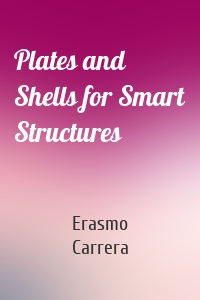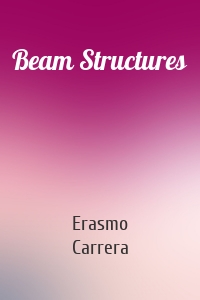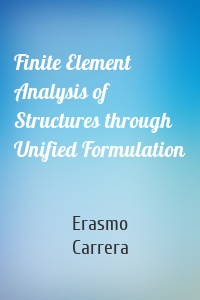Erasmo Carrera
3 кн.
Plates and Shells for Smart Structu...
Smart structures that contain embedded piezoelectric patches are loaded by both mechanical and electrical fields. Traditional plate and shell theories were developed to analyze structures subject to mechanical loads. However, these often fail when tasked with the evaluation of both electrical and mechanical fields and loads. In recent years more advanced models have been developed that overcome these limitations. Plates and Shells for Smart Structures offers a complete guide and reference to...
| Автор | Erasmo Carrera |
Beam Structures
Beam theories are exploited worldwide to analyze civil, mechanical, automotive, and aerospace structures. Many beam approaches have been proposed during the last centuries by eminent scientists such as Euler, Bernoulli, Navier, Timoshenko, Vlasov, etc. Most of these models are problem dependent: they provide reliable results for a given problem, for instance a given section and cannot be applied to a different one. Beam Structures: Classical and Advanced Theories proposes a new original unified...
| Автор | Erasmo Carrera |
Finite Element Analysis of Structur...
The finite element method (FEM) is a computational tool widely used to design and analyse complex structures. Currently, there are a number of different approaches to analysis using the FEM that vary according to the type of structure being analysed: beams and plates may use 1D or 2D approaches, shells and solids 2D or 3D approaches, and methods that work for one structure are typically not optimized to work for another. Finite Element Analysis of Structures Through Unified Formulation deals...
| Автор | Erasmo Carrera |




